 |
 |
 |
 |
 |
 |
|
|
||||
|
FEATURE |
Contributors |
|||
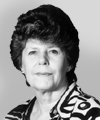 |
I'm Gwyneth Fox. I'm the Dictionaries Publisher for Macmillan. That means that I am one of the people who decides which EFL dictionaries Macmillan will publish, and what they will look like. In fact, I am very much responsible for the final look of the dictionaries and the quality of the text. So I'm the person to blame if you find things you really don't like! My first degree was in English language and literature from the University of Edinburgh, but I've never really used the 'literature' part of it: I've been a teacher of the English language for the whole of my career. I've taught at different levels – everything from 3-year-olds at nursery through to university, where I've spent most of the past twenty years teaching and researching. My first job was teaching adults at an American language school in Rome, which I enjoyed very much: there can't be many better places to start a career! Although I've been doing some teaching at the University of Birmingham since 1981, until 1997 most of my time was taken up by working on the COBUILD project. The project was set up with two main aims: to use corpus data to find out how people are using English at the present time; and then to put the research findings into dictionaries, grammars, and other reference books for people learning English as a foreign or second language. I loved those early days. I couldn't believe that I was actually paid to sit and look at words! I've lived in Birmingham for more than 30 years now, and I can't really imagine living permanently anywhere else. It's a big city, not as dirty or industrial as it used to be; it's vibrant; there's a lot of good theatre and cinema; and it has the best concert venue in Europe, if not in the world. The Symphony Hall is renowned worldwide for its acoustics, its beauty, and the quality of music played there. You won't be surprised to hear that most of my spare money is spent there! Birmingham isn't beautiful, even I can't claim that, but it is a good place to live. Macmillan is in Oxford, a one and a quarter hour drive from Birmingham. I go once or twice a week, and enjoy the drive, listening either to classical music or to a wonderful set of spoken recordings of the work of Marcel Proust. I enjoy my work. Dictionaries are really interesting books, full of fascinating information about the language. Our challenge is to make them accessible and easy to use. I'm very keen to get feedback on what we've done in the Macmillan Dictionaries series, and I'd like ideas on what we might do in the future. So please get in touch with me via this page or by email on G.Fox@macmillan.com. I promise I'll reply!
|
|||
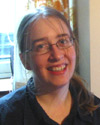 |
I first became interested in learner's dictionaries more than 10 years ago while teaching English in Lithuania. I became a lexicographer with Cambridge University Press in 1999 and since then I have been involved in several ELT publications including Cambridge Advanced Learner's Dictionary, Cambridge Learner's Dictionary, the CD-ROM versions of the Macmillan English Dictionary and Macmillan Essential Dictionary as well as the Macmillan Schools Dictionary website. I have contributed to several websites – writing articles, designing web pages as well as adapting and creating interactive activities and games. I work from my home in Perthshire and most of my spare time is taken up with my baby son Aonghas (Gaelic for 'Angus') and walking my parents' border collie, Misty.
|
|||
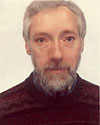 |
I come from Leeds. I did my first degree at the University of Cambridge, and then a Postgraduate Certificate in Education, during which I quickly abandoned my ambition to teach children in the UK state system. But at the end of that year I got a summer job teaching English as a foreign language to adults, found that I liked it, and I've never looked back since. I've lived in Poland since 1991. I live in As well as Inside Teaching (Macmillan), I'm co-author of The Pronunciation Book (Longman), one of the authors of Bridges (Klett) — an adult course for German-speaking learners — and the PONS Polish-English Dictionary (LektorKlett). At the moment I'm working on pronunciation materials for Polish and international readerships, and starting work on another Polish-English dictionary. I like studying languages and tracing connections between them, and I'm — still — intrigued by the question: Given that so many people in the world learn foreign and second languages informally, without books, teachers and so on, how can formal instruction help most effectively, as opposed to interfering with the learning process? I'm also keen on walking, travelling by train, photography, history, architecture, landscape, folklore and so on. I spend an enormous amount of time listening to music, and if I get reincarnated I want to be a musician next time round.
|
|||
 |
Kerry has a first degree in computational linguistics and an MA in theoretical linguistics from the University of Manchester, specialising in syntactic theory. For several years she worked as a researcher at Manchester and Essex universities, where in connection with European projects on machine translation, she was involved in computational lexicography, co-ordinating research in computational descriptions of compounds and collocations, and presenting her work in various international academic contexts. In 1993 she joined Cambridge University Press as a lexicographer/editor and grammar consultant, and worked on a large number of Cambridge learner's dictionaries, including the English Pronouncing Dictionary, the Cambridge International Dictionary of Phrasal Verbs and the Cambridge Learner's Dictionary in print and CD-ROM versions. In June 2001 Kerry moved to York where she now works as a freelance editor/lexicographer and is involved in a range of dictionary and grammar projects. Among the publications she has contributed to are Advanced Grammar In Use (2nd Ed.) and the Cambridge Advanced Learner's Dictionary for Cambridge University Press, the Collins COBUILD Elementary Grammar (2nd Ed.), Macmillan Phrasal Verbs Plus and the Macmillan School Dictionary. As well as being the regular author of the MED website's 'Word of the Week' column, she regularly writes for MED Magazine and co-authors grammar reference material for onestopenglish. Most of her spare time is spent looking after her two young sons Tom and Sam, though she enjoys walking, swimming and any opportunity to travel.
|
|||
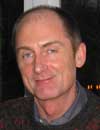 |
Adrian
Underhill Adrian works with schools and organisations to develop whole-school, integrated professional learning programmes for their staff. He also works in the areas of humanistic education, interpersonal skills and storytelling in organisational development. He is a consultant and coach in leadership and professional development through action inquiry, and Training Consultant to Embassy CES in the UK. Adrian is series editor of the Macmillan Teacher Development Series of handbooks for teachers, a set of practical handbooks on key topics in ELT. He is author of Sound Foundations: Living Phonology, and the Sound Foundations chart used in many classrooms around the world. He has been an advisor in the development of the Macmillan English Dictionary (MED, Macmillan Essential Dictionary and Macmillan Phrasal Verbs Plus and is author of the Workbook that accompanies the MED. Adrian is also regular contributor to the e-lessons specially written for the Macmillan English Dictionary and the Macmillan Essential Dictionary. He is past-president of the International Association for Teachers of English as a Foreign Language (IATEFL) and founder of the IATEFL Teacher Development Group. He has a Diploma in Facilitation Styles and a master's degree in Responsibility and Business Practice. He is currently following a PhD programme in professional learning from experience. |
|||
| Meet the Editor | ||||
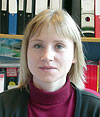 |
Kati
Sule
I come from Hungary. I studied English Language and Literature at the University of Szeged in south-east Hungary where I also completed an English Language Teaching degree. I taught English as a foreign language in Hungary and in the Netherlands. I am Managing Editor of the Macmillan Dictionaries series and was editor of the Macmillan English Dictionary Workbook. I am also one of the editors of the Macmillan English Dictionaries resource site. I live in Amsterdam and frequently travel to the UK. I'm a keen but rather lazy runner. In my free time I enjoy playing squash, watching films and reading. |
|||
| Cover illustration
by Martin Shovel Cover photograph © Alexander Benz/zefa/Corbis Dictionary excerpts taken from the Macmillan English Dictionary. Published by Macmillan Publishers Limited 2002. Text © Bloomsbury Publishing Plc 2002 and © A&C Black Publishers 2005 Cover design by Mairi MacDonald |
||||
|
|
||||